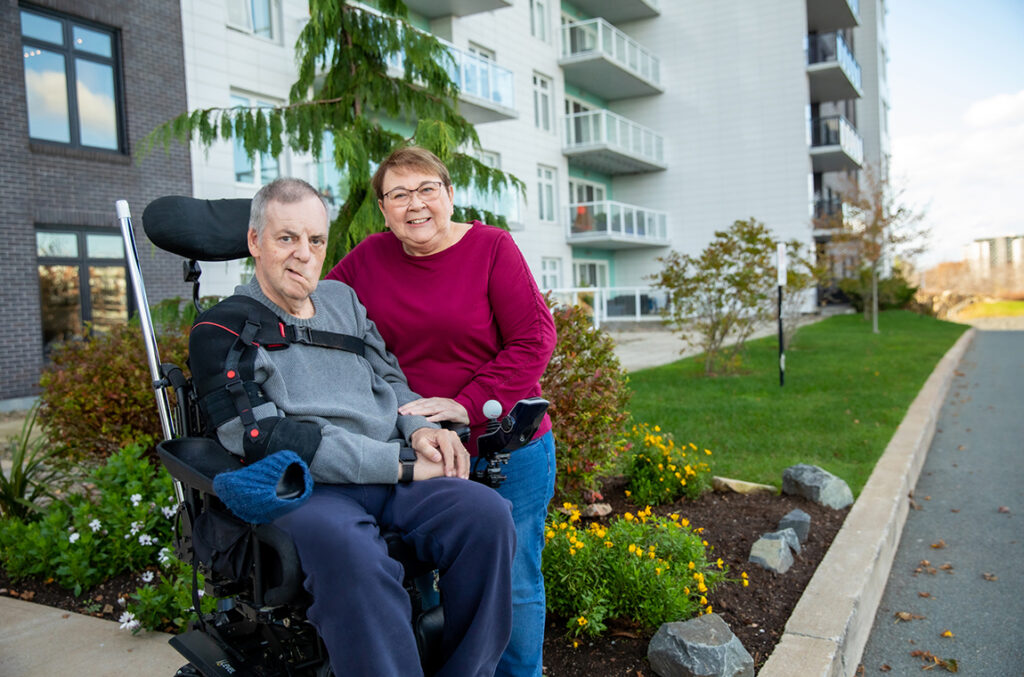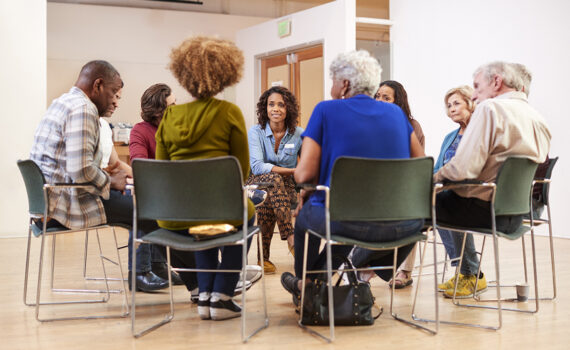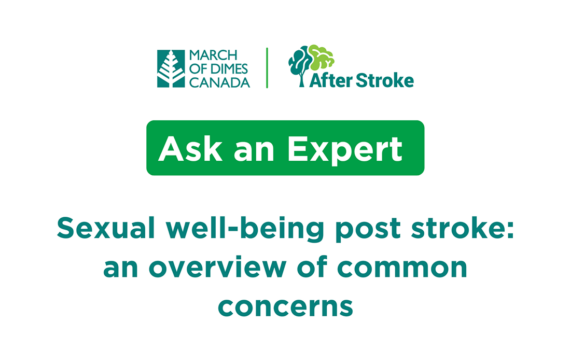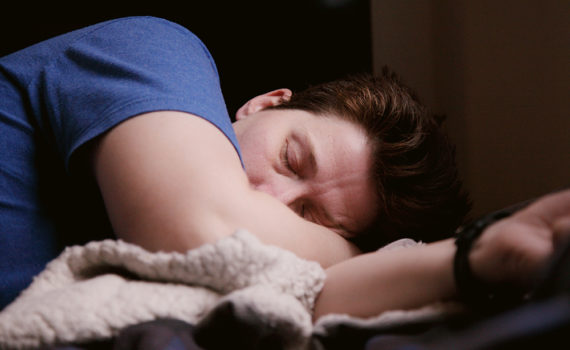
(Photo caption: Charles Nauss, a stroke survivor, beside his spouse and caregiver, Aileen Nauss.)
The innovative After Stroke program is now available in Prince Edward Island and Newfoundland and Labrador
Every six minutes, someone in Canada has a stroke. It is a leading cause of disability across the country, yet lack of access to resources, education, and supportive programming leaves many survivors and caregivers without the necessary tools needed for recovery.
Guided by lived experience, best-available evidence and expert advice, March of Dimes Canada’s After Stroke program is designed to be the country’s most comprehensive stroke recovery program. We help stroke survivors, and their loved ones find hope and humanity throughout every phase of recovery: from the earliest days in the hospital, to transitioning back home, to the changes and victories that follow.
“We believe in a world where stroke survivors can not only recover, but also live lives filled with renewed purpose and optimism, inspiring others to do the same. We are committed to improving the experience of life after stroke, and are working to evolve our programming,” said Rebecca Bourbonnais, regional director, Community Support Services at March of Dimes Canada.
Since 2021, March of Dimes Canada’s After Stroke program has helped more than 6,000 stroke survivors and their loved ones in communities across the country and we are continuing to expand our reach.
A stroke can be life-altering, impacting not only the individual, but also their caregivers and loved ones. Navigating those impacts after a stroke can be challenging, and no one should have to do it alone. This is where the After Stroke program can help.
“When someone has a stroke, transitioning from outpatient to being at home is a big step. The After Stroke program helped to make this step smoother,” says Michele Riley, whose husband Greg experienced a stroke.
“The programs Greg has become involved in have given him something to focus on to continue in his recovery and growth. Being a part of After Stroke has given Greg a sense of comfort, knowing that there is someone there to help,” she says.
After Stroke puts stroke survivors and their caregivers at the heart of our service delivery. Each participant is matched with an After Stroke coordinator who closely works with them to determine what is most important, including identifying goals and developing a personalized plan to help them succeed.
Coordinators connect survivors and their loved ones with peer support, resources, educational opportunities and innovative community-based programs (both in person and online).
After Stroke programming includes:
- Education – The more one knows about stroke, the more confident and empowered they feel as they manage their recovery
- Skill development – Re-learning and practicing skills gives survivors a greater sense of freedom, control and independence
- Speech and communication – Stroke survivors who experience aphasia can improve their speech and communication skills in a safe and welcoming environment
- Exercise and movement – Exercise and mobility are important to maintaining good health after a stroke, and help survivors improve their physical function, strength, balance, and energy levels
- Peer support – Connecting with other survivors and caregivers for emotional support, firsthand advice, and friendship
“Knowing that we had the After Stroke program helped me feel that someone was there,” says Fay McMullen, who is a caregiver for her husband Brad, a stroke survivor.
“The After Stroke Coordinator has been like a rock for me, so I can be a rock for my husband,” says Fay. “They helped get the ball rolling to get services in order and helped to give me strength.”
By offering support tailored to each individual, After Stroke helps people impacted by a stroke establish a much-needed sense of connection, and equips them with the tools and resources needed to rebuild their lives and re-connect with the people, places and activities in communities they love and value.
If you know someone in Prince Edward Island or Newfoundland and Labrador who’s been impacted by stroke, please visit AfterStroke.ca/contact-us to learn more and to submit a referral form, or call 1-888-540-6666.





